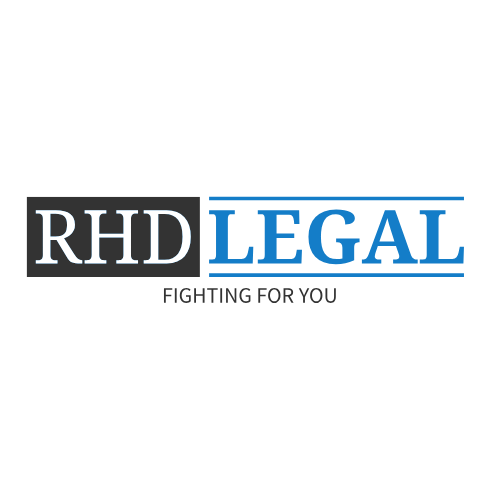
Minors in Car Accidents and Settlements in North Carolina
Car accidents are traumatic events, and when minors/children are involved, the stakes are even higher. In North Carolina, the legal process for handling car accidents involving minors differs significantly from those involving adults, as the law recognizes the vulnerability and special needs of children. At RHD Legal, we are committed to helping families navigate these complex legal waters to ensure that children receive the care, compensation, and protection they need after such a devastating event.
Understanding the Legal Status of Minors in North Carolina
In North Carolina, a minor is defined as anyone under the age of 18. Minors cannot legally enter into contracts or represent themselves in court, meaning that any legal action on their behalf must be handled by a parent, guardian, or court-appointed representative. This legal framework is designed to safeguard the best interests of the child and to ensure that their rights are fully protected during the legal process.
In the context of car accidents, this means that if a minor is injured, their parent or guardian must take legal action to pursue compensation for medical expenses, pain and suffering, and any other damages. However, the process doesn’t end there—because minors cannot legally settle claims on their own, any settlement reached must be reviewed and approved by the court to ensure it is fair and in the child’s best interest.
Common Injuries and Their Long-Term Impact on Minors
Children’s bodies are still developing, making them particularly vulnerable to injuries in car accidents. Common injuries in such cases include:
- Traumatic Brain Injuries (TBI): These can have lasting effects on cognitive development, motor skills, and emotional health.
- Spinal Cord Injuries: These may result in partial or complete paralysis, significantly impacting the child’s quality of life.
- Broken Bones and Fractures: While children’s bones heal faster than adults’, improperly treated fractures can lead to long-term deformities or mobility issues.
- Internal Injuries: Damage to internal organs may not be immediately apparent and can have serious consequences if not promptly diagnosed and treated.
The impact of these injuries can be profound, affecting the child’s physical abilities, emotional well-being, and even their future prospects, such as educational and career opportunities. Therefore, any settlement must not only cover immediate medical expenses but also account for the potential long-term care needs of the child.
The Challenge of Determining Liability
In North Carolina, the doctrine of contributory negligence applies. This means that if the injured party is found to be even slightly at fault for the accident (as little as 1%), they may be barred from recovering any damages. While this rule is strict, it can be particularly challenging in cases involving minors, as questions may arise about whether the child’s actions contributed to the accident.
For example, if a child was riding a bicycle and was struck by a car, the defense might argue that the child was not paying attention or failed to follow traffic rules, thus contributing to the accident. Such arguments can significantly impact the outcome of the case. At RHD Legal, we are experienced in countering these claims, working diligently to prove that the minor was not at fault and that the full responsibility lies with the other party involved.
The Settlement Process for Minors
When a minor is involved in a car accident and a settlement is reached, North Carolina law requires that the settlement be approved by a judge through a process known as a “friendly suit.” This process involves filing a lawsuit on behalf of the minor, even if the settlement has already been agreed upon outside of court. The purpose is to allow the court to review the settlement terms and ensure that they are fair, just, and in the best interest of the child.
The court will consider various factors during this review, including:
- The severity and permanence of the injuries: How the injuries will affect the child’s future.
- The adequacy of the settlement amount: Whether it sufficiently covers current and future medical expenses, as well as any potential impact on the child’s life and opportunities.
- The terms of the settlement distribution: Ensuring that the funds are managed responsibly and used for the child’s benefit.
Role of the Guardian ad Litem
As part of the court approval process, the court will appoint a Guardian ad Litem (GAL) to represent the minor’s best interests. A Guardian ad Litem is often times an independent, court-appointed advocate who evaluates the proposed settlement to ensure it serves the best interests of the minor. The GAL will review all aspects of the case, including the nature of the injuries, the terms of the settlement, and how the funds will be managed.
The GAL’s role is critical in cases where there might be concerns about the fairness of the settlement or potential conflicts of interest between the minor and their parent or guardian. After conducting their review, the Guardian ad Litem will make a recommendation to the court regarding whether the settlement should be approved. The judge will heavily weigh this recommendation when making the final decision.
Structured Settlements and Trusts
To further protect the minor’s financial interests, courts often approve structured settlements or trusts instead of lump-sum payments.
- Structured Settlements: These provide periodic payments over a set period, ensuring that the child has access to funds as they grow. This method helps manage the funds responsibly, preventing misuse and ensuring that the money lasts until the child reaches adulthood.
- Trusts: In some cases, the settlement funds may be placed in a trust, managed by a trustee who is responsible for using the funds in the child’s best interests. This can include paying for education, medical care, or other necessary expenses as the child matures.
Both options are designed to ensure that the settlement serves the child’s long-term needs and helps secure their future.
The Importance of Experienced Legal Representation
Cases involving minors in car accidents require a nuanced understanding of both personal injury law and the unique legal protections afforded to children. At RHD Legal, we have extensive experience handling such cases, and we are deeply committed to ensuring that your child’s rights are fully protected throughout the legal process.
Our approach is comprehensive—we work closely with medical professionals, economists, and life care planners to fully assess the impact of the accident on your child’s life. This allows us to build a strong case for maximum compensation, whether through negotiation or litigation.
If your child has been injured in a car accident, it’s crucial to act quickly. Evidence can fade, and the legal process can be lengthy. Contact RHD Legal today for a free consultation via either our contact form or via telephone at (919) 246-4001. We will guide you through every step of the process, ensuring that your child’s future is secure, because when life hits hard, you need someone who hits harder.




